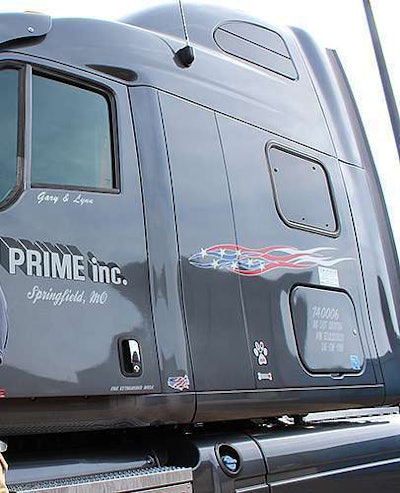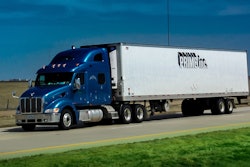
Fifteen state attorney generals and a U.S. Senator have asked the Supreme Court to uphold a ruling that carrier arbitration agreements cannot prevent owner-operators from having their day in court.
On July 25, they filed amicus briefs siding with trucker Dominic Oliveira against New Prime, along with the Owner-Operator Independent Drivers Association and several organizations representing legal scholars and attorneys. Last May, the high court had received friend-of-the court briefs from the American Trucking Association and the U.S. Chamber of Congress supporting the Missouri carrier’s bid to overturn the lower court decision.
Oliveira’s 2015 class action lawsuit alleged that the for-hire carrier misclassified many drivers as independent contractors and didn’t pay minimum wages. After completing its apprentice program, he was an independent contractor and then a company driver for Prime. He says the company’s paycheck deductions for lease payments, required tools and other items sometimes left him earning less than minimum wage or owing the company money.
He had signed Prime’s independent contractor agreement, that includes a clause stipulating disputes be settled through arbitration. A Boston federal court refused the company’s request to force Oliveira to use arbitration instead of the court system. The First Circuit Court of Appeals agreed his contract fell under the 1925 Federal Arbitration Act, which exempts transportation workers in foreign or interstate commerce from compelled arbitration.

On Oct. 3, the Supreme Court will consider if a party demands arbitration, whether the court or an arbitrator decides if the FAA applies and if the act’s exemption applies to independent contractors.
OOIDA argued Congress’ mandate over motor carrier/owner-operator leasing agreements illustrates how owner-operator agreements are considered exempt under the 1925 law. Both the association and the coalition of attorney generals noted that the Interstate Commerce Commission had adjudicated disputes between carriers and owner-operators. When Congress terminated the Interstate Commerce Commission, it granted owner-operators private right-of-action in federal courts to seek damages and injunctive relief.
Sen. Sheldon Whitehouse’s amicus brief asserts mandatory arbitration puts citizens at a disadvantage because it allows companies to choose the arbitrator and terms to resolve a dispute. The Rhode Island Democrat serves on the Senate Judiciary Committee and is a former U.S. Attorney.
The ATA and chamber argued the Federal Arbitration Act exception applies only to employee drivers who sign mandatory arbitration agreements, not independent contractors. The chamber said arbitration is faster and less adversarial than litigation, adding that if the appellate court ruling is not overturned, “thousands of arbitration agreements would be called into question.”









